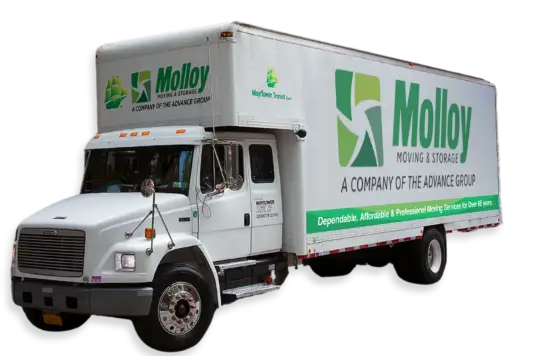Relocating later in life presents unique considerations that differ significantly from those of typical household moves. Whether downsizing to a retirement community, moving closer to family, or transitioning to assisted living, senior moves require thoughtful planning, patience, and sensitivity. A well-executed residential relocation can mark the beginning of an enriching new chapter while honoring the decades of cherished memories it holds.
Understanding the Emotional Journey
Moving can trigger complex emotions for seniors, particularly when leaving a longtime family home filled with memories. Acknowledge that this transition represents more than just changing addresses—it often means leaving behind neighborhoods, routines, and connections that have been built over many years. Creating space for these feelings while focusing on the opportunities ahead helps strike a balance between nostalgia and excitement for what’s to come.
Involving seniors in every decision maintains their sense of autonomy and dignity throughout the process. Rather than making choices for them, present options and allow time for thoughtful consideration. This approach builds confidence and ensures the move aligns with their preferences and needs.
Start Planning Well in Advance
Senior moves benefit from extended planning periods, often requiring three to six months of preparation. This timeline allows for careful decision-making without the pressure of rushed choices. Begin by creating a comprehensive moving timeline that breaks tasks into manageable weekly goals, ensuring nothing feels overwhelming.
Early planning also provides opportunities to research and visit potential new homes or communities. Many seniors find comfort in seeing their future living space multiple times, asking questions, and meeting potential neighbors before making final commitments.
Thoughtful Decluttering and Downsizing
Downsizing presents both practical and emotional challenges. Start this process early, working through one room at a time to avoid feeling overwhelmed. Create clear categories for items: essential belongings for the new home, gifts for family members, donations to charitable organizations, and items requiring disposal.
Family involvement can make decluttering more meaningful. Adult children often appreciate receiving family heirlooms, photo albums, or sentimental items that connect them to their heritage. Consider hosting a “memory sharing” session where family members can select meaningful items while sharing stories about their significance.
For items with monetary value, professional appraisers can provide guidance on valuable antiques, artwork, or collectibles. Estate sale companies can also help maximize returns on items that won’t fit into the new home.
Selecting the Right Moving Support
Professional moving companies experienced with senior relocations understand the unique needs of older adults. These specialists often provide services beyond basic transportation, including packing assistance, furniture arrangement, and even unpacking services that help seniors settle into their new homes more quickly.
Look for movers who demonstrate patience, clear communication, and respect for seniors’ belongings and concerns. Many companies offer specialized senior moving services that include careful handling of fragile items, assistance with utility transfers, and coordination with new living facilities.
Preparing for Moving Day
Create a detailed plan for moving day that prioritizes senior comfort and safety. Pack an essentials bag containing medications, important documents, comfortable clothing, and personal items that provide comfort during the transition. Keep these items readily accessible, rather than packing them away with other belongings.
Consider arranging for seniors to stay with family or friends during the most hectic parts of the move. This reduces stress and allows moving teams to work efficiently without worrying about navigating around furniture or creating noise that might be disruptive.
Setting Up the New Home
Arrange the new living space to feel familiar and comfortable from the very start. Place favorite furniture pieces in prominent locations and display cherished photographs, artwork, or collectibles early in the unpacking process. These familiar touches help the new space feel like home more quickly.
Safety considerations become particularly important in new environments. Ensure adequate lighting throughout the home, remove tripping hazards, and install grab bars or other accessibility features as needed. Take time to familiarize seniors with new appliances, security systems, or emergency procedures specific to their new living situation.
Building New Community Connections
Help seniors establish new routines and social connections in their new environment. Research local senior centers, religious organizations, hobby groups, or volunteer opportunities that align with their interests. Many retirement communities offer orientation programs or buddy systems that pair new residents with established community members.
Maintain connections with longtime friends and family members through regular phone calls, video chats, or planned visits. These ongoing relationships provide continuity and emotional support during the adjustment period.
Managing Medical and Legal Transitions
Coordinate healthcare transfers well before the move. Request medical records from current providers and research new doctors, specialists, and pharmacies in the destination area. If you’re moving to a different state, be aware of any changes in insurance coverage or prescription requirements.
Update legal documents to reflect the new address, including wills, powers of attorney, and beneficiary information. Notify Social Security, Medicare, and other government agencies of the address change to ensure uninterrupted benefits and services.
Your New Chapter Begins Here
Senior moves represent significant life transitions that deserve careful attention and compassionate support. With proper planning, family involvement, and professional assistance, these relocations can lead to fulfilling new experiences and enhanced quality of life. Every ending creates space for new beginnings, and your next chapter holds endless possibilities for growth, connection, and joy.
Our experienced team understands the unique needs of senior moves and provides the gentle, professional support that makes transitions smoother for everyone involved. Contact us today to discuss how we can help make your move a positive experience from start to finish.




